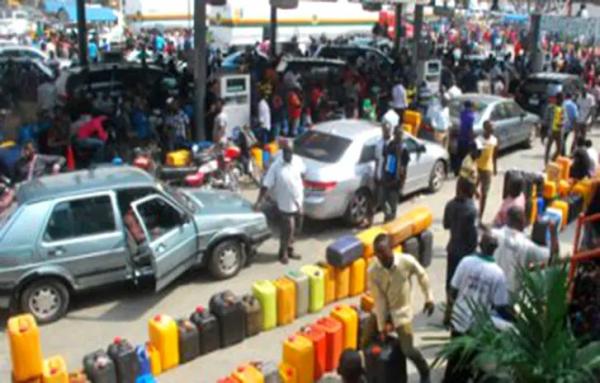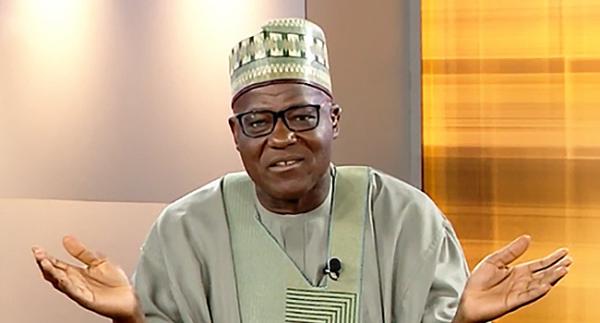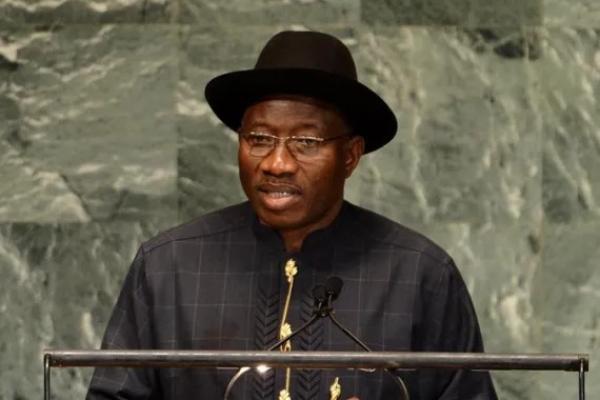
Monday, 28th June 2021: The Federal Government, Sunday, restated the need to deregulate the downstream sector of the oil and gas industry through market-driven pricing of products to boost the nation’s economy.
Minister of State for Petroleum Resources, Mr. Timipre Sylva, who stated this at the News Agency of Nigeria, NAN, Forum in Abuja, also said the country “accidentally” discovered 206 trillion cubic feet of gas reserves while in search of crude oil.
He said: “I will say that my stand on fuel subsidy and deregulation is well-known. I strongly believe that for this country to move forward, for our economy to make the progress it desires, we need to have a market-driven pricing of products.
“A situation where you produce something at a certain cost and you have to sell it at a lower cost to people because you are taking some of that burden off the people is not the best.
“It is a very desirable thing but it is also not too sustainable because what happens is that you produce it for N10, you sell it for N5; tomorrow, you produce it again at N10, you add N5 from somewhere, produce it again at N10 and sell it for another N5.
“So, the losses increase and compound on a daily basis and those accumulated losses have brought us to where we are.”
According to him, people’s view that if the refineries are working, importation of products will stop is not the real issue on ground.
‘Refineries not working because of subsidy’
Contending that subsidy was part of the things that made the refineries to stop operating in the country, Sylva said: “Part of the reasons the refineries were not working is subsidy because a refinery that is producing something at a certain cost and selling at a loss cannot sustain itself.
“Over the years, the refineries couldn’t sustain themselves and all of them died. So, if you do not deregulate, you will find out that the refineries, even if you fix them today, cannot be commercially operated because the refineries need maintenance and they need to run.
“If you are producing something and they are selling at a certain subsidised price, it cannot work. That is why you see that the sector is not growing at all.”
He noted that Dangote Group, for example, sited its refinery near the sea to aid exports and enable it make more money for sustainability.
“If he sells within Nigeria in this subsidised environment, he will not break even. So, that is the way it is and we must look at it because, I know that a lot of Nigerians think that we must carry on like this but in the end, I think it is better for us to deregulate,” he said.
He described as unfortunate people’s perception about subsidy, which had made the common man on the street to begin to fight government.
According to him, “subsidy never favours them.”
Speaking further, the minister said: “It is actually in the interest of the common Nigerian to ensure that some people do not just profiteer on them, which is what has been happening.
“You must have heard of all the subsidy scams a few years ago; people were making billions on these same subsidies. And when you say you want to take it out, the common man is the one on the street but at the end of the day, is it the common man that is benefiting? I don’t think they are the biggest beneficiaries.”
‘All fuel connected to commoners deregulated’
He also noted that all the fuels that were connected to the common man had been deregulated.
“Kerosene, which the common man uses to cook in a stove and used in the village to burn firewood is deregulated.
“The diesel that is used to move the trucks that move food from farms to market is deregulated; but petrol which is the preferred fuel for big people is the fuel that has defied deregulation.
“But at the end of the day, I believe that it is better for us because if we are able to deregulate, then we can save money.
“First, you can imagine the savings we will make as far as foreign exchange, forex, is concerned and, of course, it will bring down the pressure on forex.
“People will be able to access forex for imports, government will not be the one providing foreign exchange for the importation,” he said.
According to him, since government will no longer be subsidising, all that money that will be gained, which is over a trillion naira yearly, will now be used for development.
“You can imagine how much money the federal and state governments will have at their disposal, if there is deregulation,” the minister said.
‘206 trillion cubic feet of gas accidentally discovered’
On the discovery of additional 600 trillion cubic feet of gas reserve, Sylva said:”We have a lot of gas in this country. We have 206 trillion cubic feet of gas reserves.
“This number is already discovered in gas reserves and this 206 trillion cubic feet reserve was found while looking for oil, so it was accidentally discovered.
“We were actually going to look for crude oil and we found gas, and in that process of accidentally finding gas, we have found up to 206 tcf.
“So, the belief is that if we really aim to look for gas with dedication, we will find up to 600 trillion cubic meters of gas.”
Impact of COVID on the oil sector
Sylva noted that the COVID-19 pandemic had some positive impact on the Nigerian oil and gas sector, despite its negative effect on the global economy.
He said the pandemic forced Nigerians to take over the running of the oil and gas industry as most of the expatriates working in the sector had to travel to their countries because of the lock-down.
“They (expatriates) have to rush out so that they will be locked down in their countries, and when that happened, it means that we lost a lot of expatriate personnel.
“But the good side of COVID-19 for us is that our Nigerians were able to step into their shoes.”
Rehabilitation of Port Harcourt Refinery
The minister said the oil-producing communities where the Port Harcourt Refinery Company, PHRC, is located are being carried along in the rehabilitation exercise.
“It is not the government that will engage directly with the communities, we are the government and we have been able to give the contract to EPC contractors. Part of the EPC contractors’ role is engagement with communities,” he said.
He noted that rehabilitation of the refinery was done through international tenders, adding that international companies responded accordingly.
It will be recalled that the Nigerian National Petroleum Corporation, NNPC, had on April 6, signed the EPC contract with Maire Tecnimont SPA, an Italian company, for rehabilitation of PHRC.
‘PIB’ll be passed soon’
On the Petroleum Industry Bill, PIB, the minister assured that it would be passed in the next few weeks.
He said: “I am very optimistic that the PIB will be passed very soon. I have always thanked and commended the National Assembly for their commitment as well.
“I have seen a lot of commitment from the National Assembly; they have gone on retreat because of this and just yesterday (Saturday), we also engaged and they are very much on the Petroleum Industry Bill.
“From all the engagements that we have had with stakeholders, I believe that the PIB will be passed within a matter of weeks, if not next week, it will be weeks after.
“But definitely, you can see a clear line of sight to the end of the journey as far as the PIB is concerned.’’
Sylva said that the PIB will be the foundation of continued growth of the oil and gas industry, adding “it is unfortunate that the passage was delayed for over 20 years and for very good reasons.”
He said the delay was because the petroleum industry was at the core of the economy of Nigeria.
“We cannot be changing the laws with that kind of sector too often because people are making long term investments with long term projections based on your laws.
“If you now say you want to be changing your laws very often, the climate will not be stable for investors and that is why it is okay for me that this has taken this long in a way.
“And also, it tells you one other story that if it took us 20 years to pass PIB, then you can imagine that this is not an easy law to pass.
“That means, when we pass it, it can be clear about the Nigerian investment climate,” he said.
Recall that PIB had passed all the stages and public hearing at the National Assembly and a committee was set up to finalise the findings on the bill.
At the just-concluded Nigeria International Petroleum Summit, NIPS, speaker of the House of Representatives, Femi Gbajabiamila and the President of the Senate, Senator Ahmed Lawan, assured that the bill would be passed in June.
Lawan said the 9th National Assembly would continue to support all efforts to ensure the passage of the PIB.
“We will give Nigeria a fair Act; we will listen to everyone, we have a cooperative approach, so we are working with all the stakeholders to get things done right.
“We have been able to achieve consultation on PIB and we are working with the joint committee and hopefully the bill will be passed in June.
“We are conscious of the fact that we must give Nigeria a legal framework that will help to guide effective utilisation of the huge deposits of hydrocarbon for growth,” he had said.
Stakeholders react
Recall that the Nigerian Labour Congress, (NLC), had its National Executive Council, NEC meeting in Abuja last week, restated its opposition to the deregulation of the downstream sector of the oil and gas industry.
The NLC had in a communique signed by the President and Acting General Secretary, Ayuba Wabba and Ismail Bello, resolved that Nigerian workers would automatically down tools as soon as increase in the price of petrol was announced by government.
Reacting to the minister’s declaration on deregulation, The executive director, Spaces for Change, Victoria Ibezim-Ohaeri, said: “The rising call for full deregulation of the petroleum sector deserves rigorous scrutiny.
‘’The expected kick-off of a privately-owned refinery is being touted as Nigeria’s passport to end products’ importation, reducing foreign exchange demand for fuel imports, while serving as a shortcut for the wider oil sector reforms.
“There have also been calls made to insert certain clauses in the petroleum reform bill— Petroleum Industry Bill—mandating the grant of import licenses to only companies with active refining licenses.
“Calls have also been made to encourage investment in local refining by granting dominant refining licensing status efforts to certain business players.
“Underneath these calls lay the foundation for a market monopoly, including multiple layers of barriers to economic freedoms, which make it harder for smaller companies to compete in the petroleum industry in the future.
“All of these hint at an urgent need for an in-depth inquiry into the current regulatory prescriptions in order to check whether there are any potential barriers to the competitive landscape that might affect the oil and gas industry and inhibit the economic freedom of citizens.
“Nigeria should take it easy and slowly with the plans for full deregulation of the sector. There seem to be so many landmines underneath that call.”
The chairman, Major Oil Marketers Association of Nigeria, (MOMAN), Tunji Oyebanji, said in his reaction: “We have been saying it and it has always been an issue.
“Like the many issues in the country, if we don’t have the will to do something at the appropriate time, the situation will force itself on us eventually. That is what has happened to us at the moment.
“The governors had earlier noted that the current situation is not sustainable. However, that desire has to be translated into action.
“We await further reactions from the government on the subject, remember government says it is still discussing with labour who are opposed to deregulation at the moment.
“As to benefits of deregulation, it is no longer a matter of choice but an imperative for survival. If you doubt, let’s wait and see what happens if we continue the way we are going.”
On plight to Nigerians, he said: “We would have to adjust our lifestyle. For individuals, when there are changes we should adjust.
“For Nigerians, we like to enjoy without rational thinking. When people are saying we would suffer, yes it will happen if we don’t adjust our spending habits.”
On the benefits, Mr. Oyebanji explained that full deregulation of the downstream sector would set Nigeria ahead of other African economies in the area of local petroleum products refining as against exporting crude oil for refining.
He listed other benefits to be expected from the process as; “alignment with the Nigeria National Petroleum Policy, construction and maintenance of refineries, product availability in the country and for export, increased foreign exchange earnings, including transforming the country into a centre for innovation and technology.
“Others are the growth of local refining capacity, leading Nigeria to become a net exporter of refined petroleum to West and Central Africa, and meeting local, regional demands and earning Nigeria increased foreign exchange.
“It is a win-win for the Nigerian consumer, industry stakeholders and the country, importation of PMS by marketers can resume, freeing the Federal Government from the unsustainable cost and increasing debt the burden associated with a regulated pricing system.”
Similarly, Professor Wumi Iledare, Ghana National Petroleum Corporation, GNPC Professor & Chair in Petroleum Economics & Management, Institute for Oil and Gas Studies, Cape Coast, Ghana, said: “There can be no deregulation without the Petroleum Industry Bill, PIB, becoming an Act.
“Another populist President can always come and reverse it.”






















